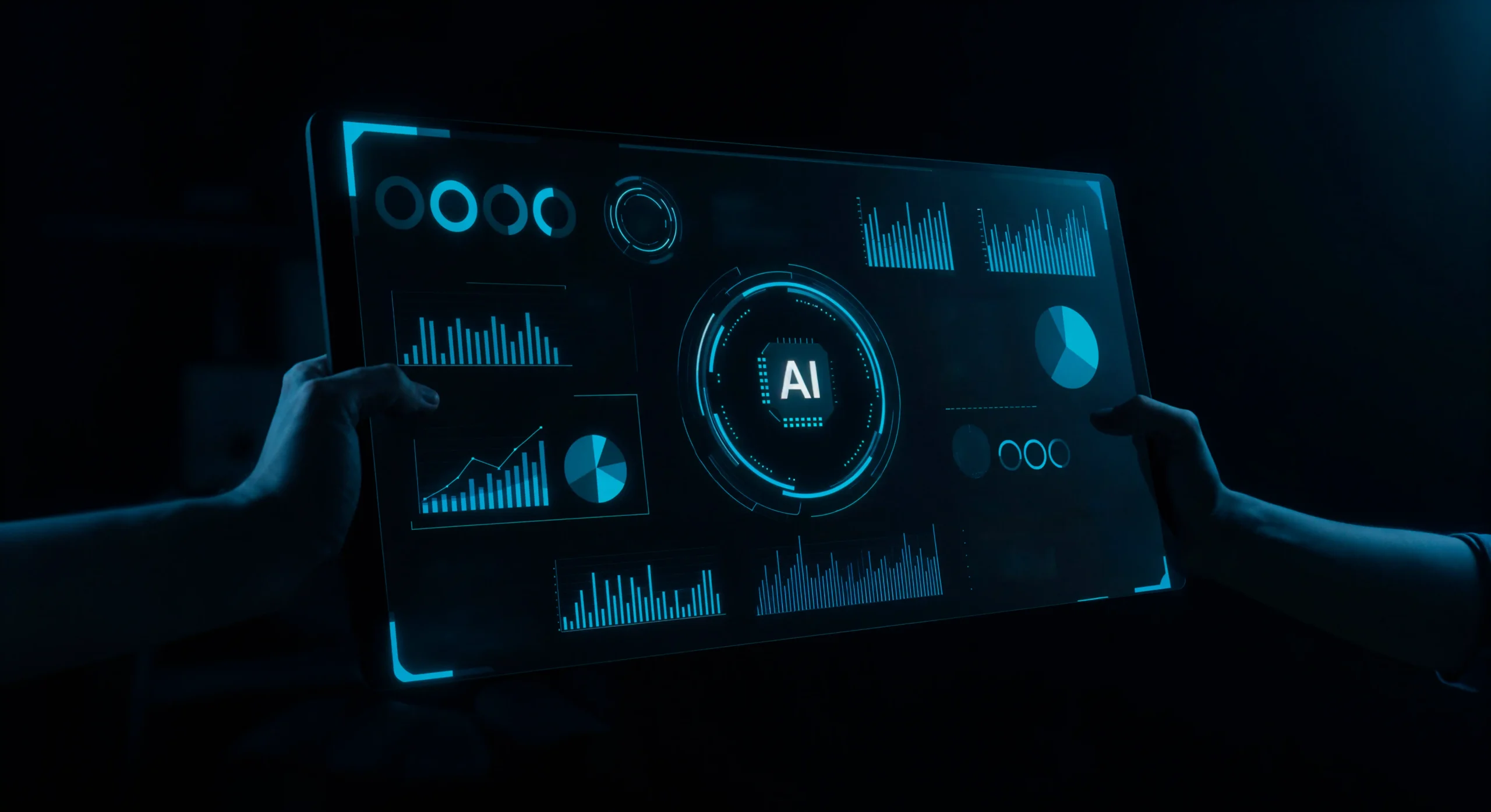SEO in the Age of AI The Slow Death of Clicks
By Afef Yousfi


For two decades, the foundation of the internet economy was built on a simple bargain: publishers created content, search engines indexed it, and users clicked on links. Websites invested heavily in search engine optimization (SEO), a mixture of keywords, backlinks, and careful structuring to secure those coveted spots at the top of Google’s search results. Traffic flowed, businesses thrived, and entire industries were born around the promise of getting a page to rank.
That world is now eroding. With the rise of artificial intelligence, particularly Google’s AI Overviews, the traditional search model is being upended. Instead of sending users to websites, Google increasingly provides answers directly on the results page. The old model, “rank, click, monetize,” is collapsing under the weight of “ask, answer, move on.”
From blue links to instant answers
When users searched for information, they were greeted by a page of links, often accompanied by snippets. Clicking through was the only way to truly get an answer. Now, a significant share of queries can be resolved in an instant by AI-generated summaries. These overviews stitch together information from across the web and deliver it in a neatly packaged paragraph or cluster, complete with images, videos, and even suggested follow-up questions.
“SEO is not dead, but traditional SEO is dying a slow death.”
For the everyday user, this is efficient. No need to open multiple tabs or sift through lengthy articles; the summary provides everything they need in seconds. But for publishers, businesses, and creators, it is a slow suffocation. Their painstakingly built traffic pipelines are evaporating as fewer users bother to click through.
The Numbers Don’t Lie
Several recent studies reveal the depth of this transformation. Data shows that clicks are plummeting when AI summaries appear. Some reports suggest that users now click on links just once in every hundred searches, a staggering decline that highlights how dramatically behavior has shifted. In one striking statistic, nearly 60 percent of Google searches in 2024 resulted in no clicks at all.
The consequences for websites are profound. Some top-ranking pages have seen up to 80 percent of their traffic vanish, not because they lost their position in search rankings, but because users simply stopped clicking. When the answer is already displayed at the top of the page, what incentive is there to continue?
“For Google, this is efficiency. For websites, it is a slow death.”
Traffic loss doesn’t just mean fewer pageviews. It means fewer ad impressions, fewer conversions, fewer subscribers, and ultimately, fewer reasons for websites to keep investing in quality content. The economic backbone of online publishing is being eroded in real time.
The Risks of AI-first Search
While AI-driven summaries are fast and convenient, they are not flawless. Generative AI can hallucinate, misinterpret, or distort sources. Early rollouts produced bizarre suggestions like recommending glue on pizza or promoting outdated facts. Even when the answers are correct, the summaries often provide little context and limited attribution.




Another troubling issue is the type of sources prioritized. Major platforms like Wikipedia, Reddit, and especially YouTube dominate citations, while independent publishers and smaller voices are often pushed to the margins. The concern is not just about fairness, but about diversity of information. When a handful of platforms become default references for billions of queries, the richness of the web suffers.
“AI is not always accurate and yet it increasingly controls what we see and what we don’t.”
The dynamic is even more concerning when you consider the economic incentives. Alphabet, Google’s parent company, owns YouTube. If AI results systematically promote Alphabet-owned content, competitors face an uneven playing field. For many publishers, it feels like they are competing not just with algorithms, but with the very company that controls access to their audience.
Can Companies Fight Back?
This raises the pressing question: can businesses and publishers counter this shift, or must they accept a future with shrinking organic traffic?
The short answer: You cannot reverse user behavior. Once people become accustomed to getting instant answers, they will not return to clicking links for basic queries. But adaptation is possible. It requires a rethinking of goals, formats, and distribution strategies.
First, the definition of SEO success needs to evolve. Ranking well may no longer guarantee traffic, but it can still build brand awareness. If a company’s name appears in the AI summary, even if users don’t click, that visibility has value. The metric of success can no longer be “organic sessions” alone. It must also include brand recognition, direct searches, and long-term trust.
Second, companies must create content that AI cannot easily summarize. Tools, calculators, proprietary data, and interactive experiences offer unique value that a generative model cannot replicate. A well-built mortgage calculator or a detailed pricing tool compels users to visit the site, regardless of what the AI summary shows.
Third, video is becoming increasingly important. Platforms like YouTube are frequently cited in AI summaries, making it a crucial battleground for visibility. Businesses that produce high-quality video content have a greater chance of being embedded in summaries and video, by its nature, demands clicks and engagement.
Fourth, direct relationships with audiences are more vital than ever. Email newsletters, podcasts, communities, and apps are channels that bypass search engines altogether. For publishers, building loyal audiences that return by choice is the surest defense against the volatility of algorithm changes.
Finally, companies must invest in authority and expertise. When AI tools decide what to include in summaries, they are more likely to pull from trusted, well-cited, and expert-driven sources. This means original research, strong authorship signals, and verifiable authority carry new weight.


The long game
Adaptation and Survival
The landscape of search is unlikely to revert to the old model of blue links and organic traffic. AI-generated overviews are not a temporary experiment but part of a broader shift toward an “answer-first” internet. Google will continue refining the technology, regulators may intervene to ensure fairness, and publishers will experiment with new monetization strategies.
But the direction is clear: clicks will be harder to come by. The companies that survive and thrive will be those that stop relying on commodity information and instead build distinctive, indispensable assets.
This means doubling down on originality, crafting content experiences that AI cannot replace, and nurturing direct connections with audiences. It also means accepting that SEO is no longer just about ranking, but about being recognized, even in a world where the answer may appear without a single click.
The death of traditional SEO does not mean the end of search-driven discovery. It means the end of an era where websites could count on search engines to deliver traffic simply for producing optimized content. The next era will demand more creativity, resilience, and innovation.



